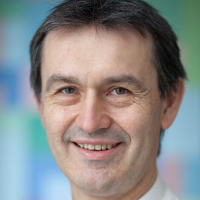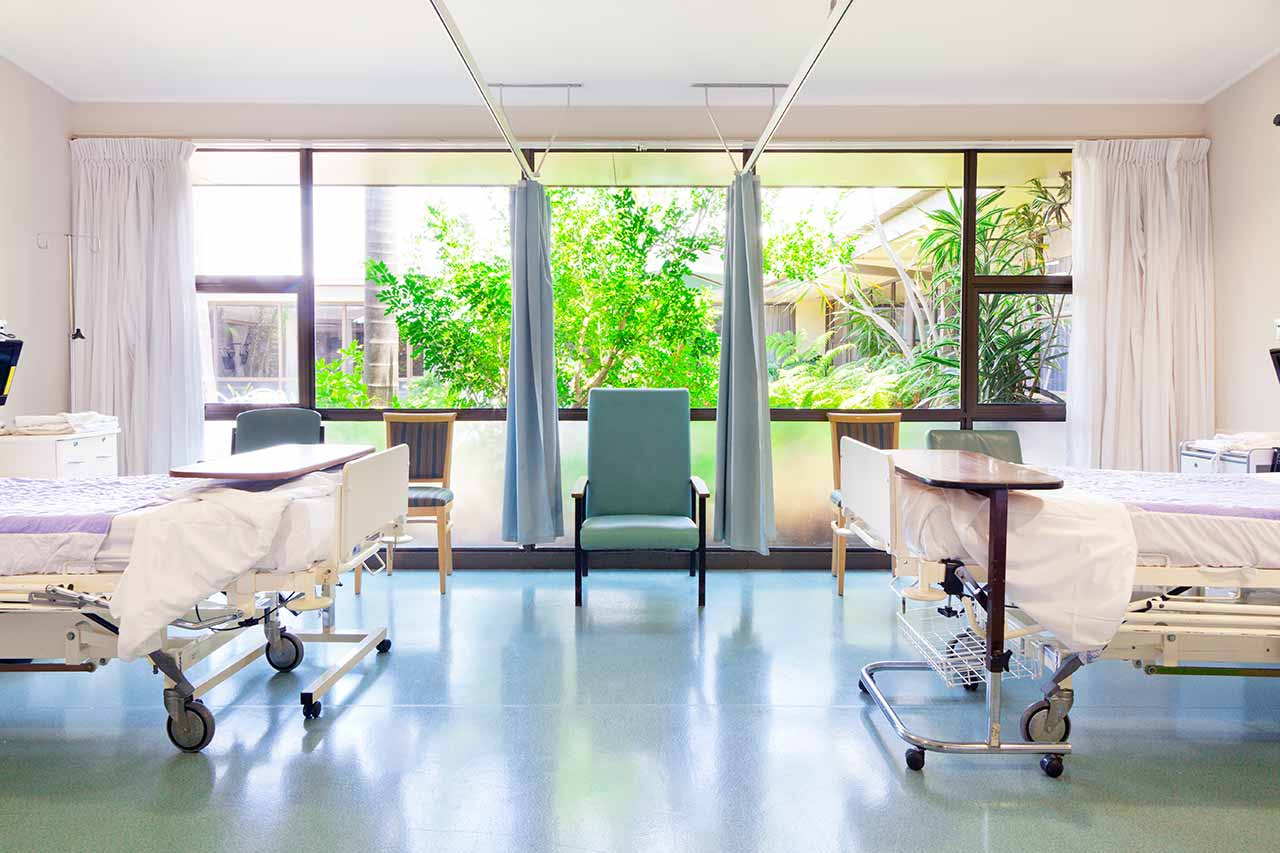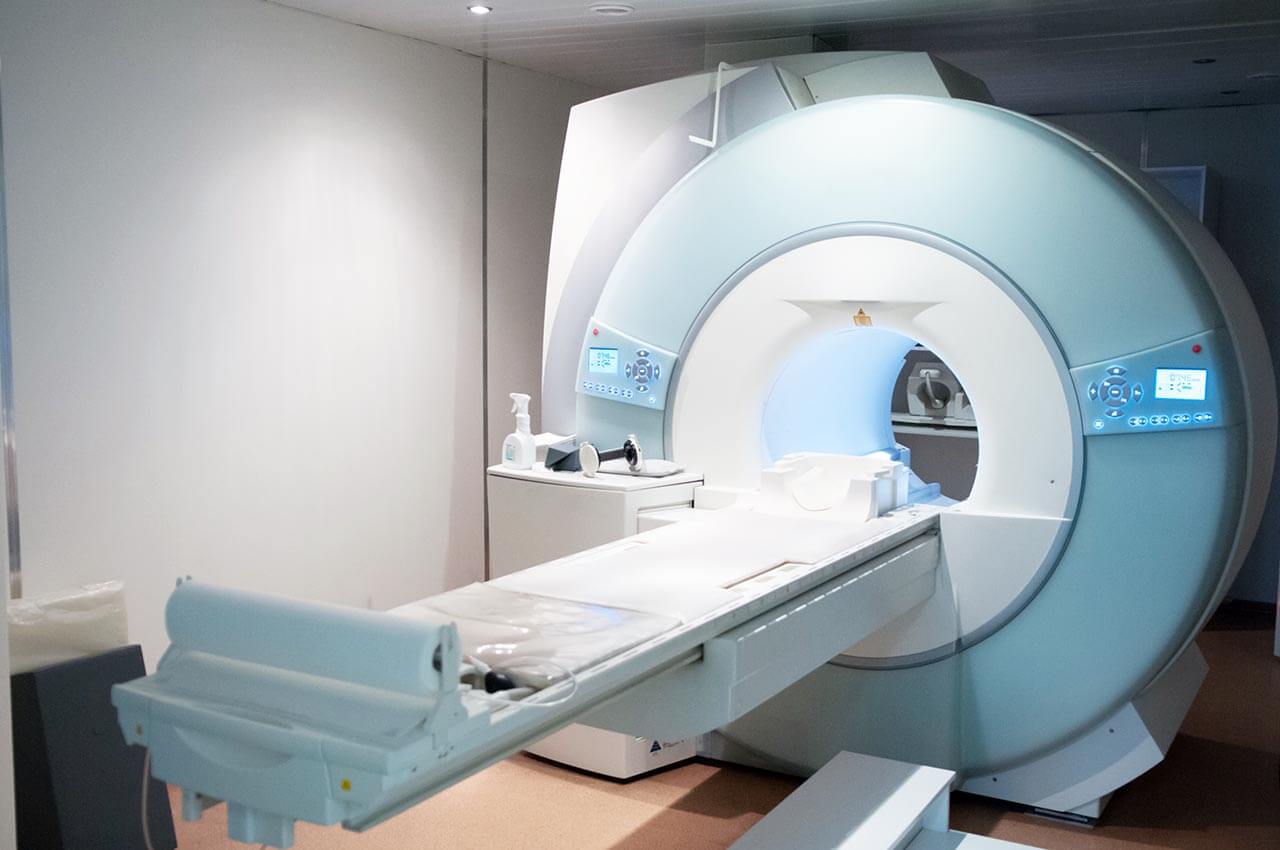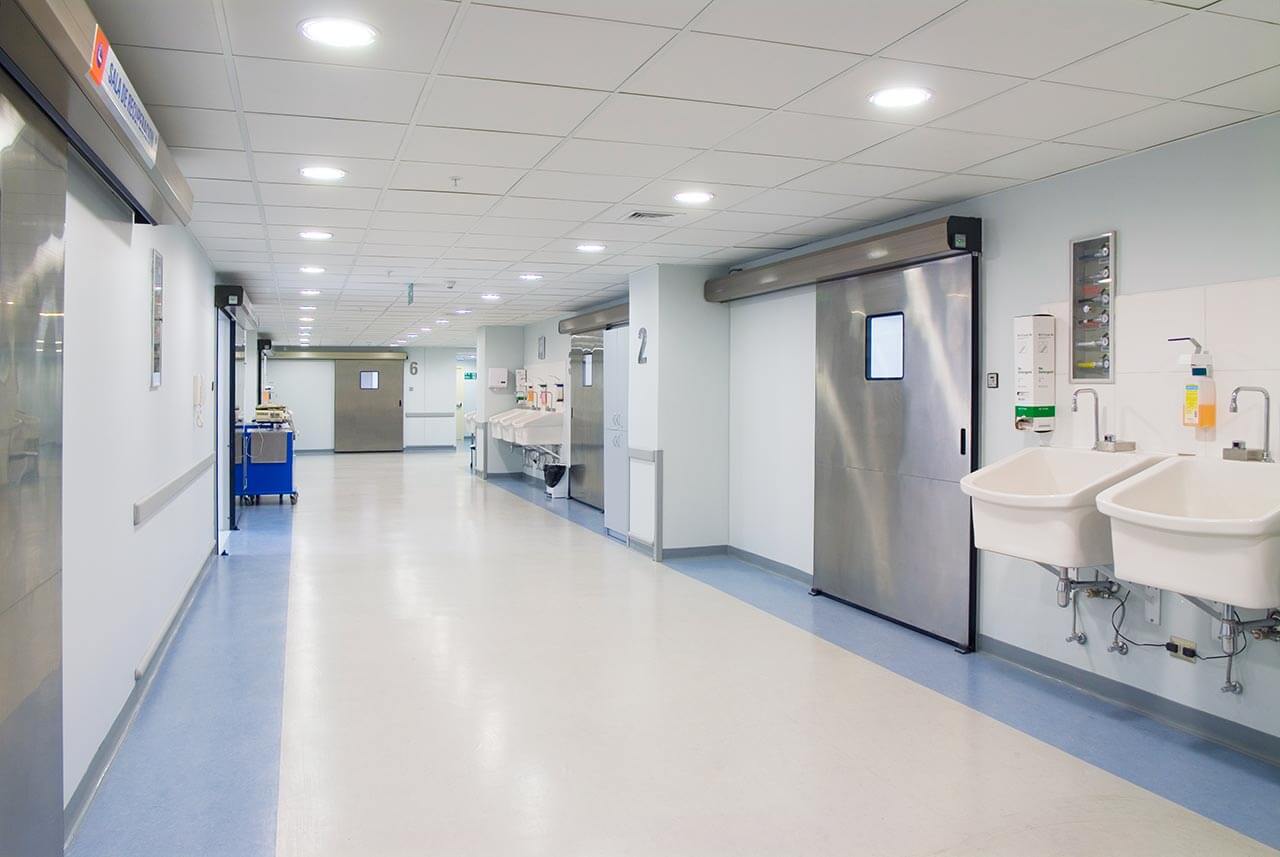
About the Department of Adult and Pediatric Gynecology, Mammology, Obstetrics, Reproductive Medicine at University Hospital Saarland Homburg
The Department of Adult and Pediatric Gynecology, Mammology, Obstetrics, Reproductive Medicine at the University Hospital Saarland Homburg provides the full range of services in these fields at the highest level of modern medicine. The department's main clinical activities include the treatment of female reproductive system cancers and breast cancer, endometriosis, uterine fibroids, pelvic organ prolapse, and urinary incontinence. The department admits girls and young women with gynecological problems, including delayed puberty, menstrual irregularities, and recurrent genital infections. The department's doctors have a special competence in the correction of congenital anomalies in the development of the female reproductive system. The team of obstetricians at the medical facility provides pregnancy management, childbirth, and postpartum care for mother and child. The department also offers modern options for treating female infertility. With 94 beds, high-tech operating rooms and treatment rooms, modern delivery rooms, and specialized outpatient clinics, the department has the status of one of the largest and most competent medical facilities of this kind in Germany. The department is headed by Prof. Dr med. Erich-Franz Solomayer.
In the field of gynecology, patients receive accurate diagnostics and treatment for pathological changes in the female reproductive system. Of particular interest is the treatment of uterine, cervical, ovarian, and vulvar cancers, as well as other types of gynecologic cancer. The majority of surgical interventions are carried out using minimally invasive techniques. The department's arsenal includes many therapeutic approaches, the most effective of which are antibody therapy, hormone therapy, and immunotherapy. The medical facility was awarded a quality certificate by the German Cancer Society (DKG) in the treatment of female reproductive system cancers. It is worth noting that only leading German hospitals receive such certificates where modern methods of cancer treatment are available and high treatment success rates are regularly achieved.
Women often seek medical attention at the department for benign gynecologic diseases, the most common of which are endometriosis, cervical dysplasia, and fibroids. When a woman has a confirmed endometriosis diagnosis, the department's gynecologists use both conservative and surgical treatment methods (depending on the complexity of the clinical case). The basis of conservative treatment is hormone therapy. As for surgical methods, they are extremely rarely required. If a patient still needs surgery, it is usually performed using minimally invasive techniques without large incisions in the abdominal wall. To treat cervical dysplasia (a precancerous condition), the department successfully uses such modern surgical interventions as conization of the cervix, loop electrosurgical excision procedure, laser vaporization, and laser excision of pathological foci. Uterine fibroids are most often treated by the department's gynecologists with hormone therapy. In complex cases, invasive procedures may be required, such as enucleation, hysterectomy, uterine artery embolization, or the MRgFUS procedure.
The department specializes in the diagnostics and treatment of girls with infectious diseases, genital pain, hormone disorders, irregular menstrual periods, etc. Young girls have the opportunity to ask a doctor all their questions in the field of gynecology. The consultations cover important topics such as contraception, prevention of sexually transmitted infections, general recommendations for intimate hygiene, the menstrual cycle, and puberty. In addition, the department's gynecologists have vast experience in the surgical repair of congenital reproductive system malformations in girls, including hymenal atresia, vaginal septa, vaginal aplasia, etc. As a rule, the surgical repair of these anomalies is performed using low-traumatic techniques.
An integral part of the work of the department's doctors is the treatment of breast cancer, one of the most common and aggressive types of cancer in women. The department is certified by the German Cancer Society (DKG) as the Breast Center. Patients are treated by a multidisciplinary team consisting of breast specialists, oncologists, radiologists, nuclear medicine specialists, radiation therapists, and psychologists. Doctors regularly meet at interdisciplinary tumor boards to discuss the diagnostic results of each patient and develop an individual treatment regimen for breast cancer. As a rule, the treatment is based on the resection of a malignant breast tumor. In many cases, surgeons manage to perform an organ-preserving intervention, but in the advanced stages of the oncological process, a mastectomy (total breast removal) is often required. For the department's breast specialists, it is important not only to provide high-quality cancer treatment but also to ensure a good aesthetic result. In this regard, modern options for aesthetic plastic surgery are used here for the reconstruction of the removed breast. Surgical treatment of cancer is necessarily supplemented with conservative treatment methods such as chemotherapy, radiation therapy, antibody therapy, antihormonal therapy, and others.
For many years, the department has been a leading Level I Perinatal Center, which provides new mothers with ideal conditions for monitoring during pregnancy and childbirth, including preterm and high-risk childbirths. In cooperation with the Department of General Pediatrics and Neonatology, the Department of Gynecology also takes care of the health of newborns.
The department also offers services in reproductive medicine. Doctors in this field carry out examinations to detect the causes of infertility and determine its effective treatment. At the diagnostic stage, non-invasive and invasive examinations are used, including hormone tests, assessment of the fallopian tube patency, and a hysteroscopy. It is often enough for a woman to undergo a course of hormone therapy to achieve a long-awaited pregnancy. In many cases, the cause of female infertility is a gynecological disease, such as uterine fibroids or endometriosis, and their effective treatment helps a patient conceive a child. The department also offers advanced assisted reproductive technologies such as in vitro fertilization (IVF), intrauterine insemination, intracytoplasmic sperm injection, assisted hatching, and others. The department's doctors carefully develop a treatment regimen for each woman based on her clinical indications and wishes.
The department's range of medical services includes the following:
- Gynecology
- Diagnostics and treatment of reproductive system cancers in women: uterine, cervical, ovarine, and vulvar cancers
- Conservative treatment
- Chemotherapy
- Radiation therapy
- Antibody therapy
- Hormone therapy
- Immunotherapy
- Surgical treatment
- Minimally invasive and open surgery
- Conservative treatment
- Diagnostics and treatment of cervical dysplasia
- Conservative treatment
- Drug therapy
- Surgical treatment
- Loop electrosurgical excision (conization) of the cervix
- Laser vaporization of the cervix
- Laser excision of the cervix
- Laser excision of the pathological foci
- Conservative treatment
- Diagnostics and treatment of endometriosis
- Conservative treatment
- Hormone therapy
- Surgical treatment
- Minimally invasive interventions
- Conservative treatment
- Diagnostics and treatment of uterine fibroids
- Conservative treatment
- Drug therapy
- Hormone therapy
- Therapy with ulipristal acetate (Esmya®)
- Methods of naturopathy, traditional Chinese medicine, and acupuncture
- Surgical treatment
- Organ-preserving surgical procedures (fibroid enucleation) through hysteroscopic, laparoscopic, and abdominal approaches
- Surgical removal of the uterus (hysterectomy) through laparoscopic and abdominal approaches
- Minimally invasive therapy (uterine fibroid embolization, ultrasound- or MRI-guided HiFU technique)
- Conservative treatment
- Diagnostics and treatment of urogynecologic pathologies: urinary incontinence, overactive bladder, and pelvic organ prolapse
- Diagnostics and treatment of urinary incontinence
- Conservative treatment
- Therapy with modern pessaries
- Local therapy with creams and vaginal suppositories
- Workouts to strengthen the pelvic floor muscles
- Electrical stimulation with or without biofeedback
- Drug therapy with drugs that relax the bladder
- Surgical treatment
- TVT, TOT, and TVT-O sling procedures
- Burch colposuspension
- Bulkamid injections
- Diagnostics and treatment of overactive bladder
- Conservative treatment
- Drug therapy
- Electrical stimulation
- Surgical treatment
- Apical fixation
- Sacral neurostimulation
- Botulinum toxin A injections
- Diagnostics and treatment of pelvic organ prolapse
- Conservative treatment
- Surgical repair
- Diagnostics and treatment of urinary incontinence
- Diagnostics and treatment of gynecologic problems in children and adolescents
- Conservative treatment
- Drug therapy (for example, in the case of infections and pain in the genitalia)
- Surgical treatment
- Surgical repair of congenital reproductive system malformations in girls (for example, hymenal atresia, vaginal septa, and vaginal aplasia)
- Conservative treatment
- Diagnostics and treatment of reproductive system cancers in women: uterine, cervical, ovarine, and vulvar cancers
- Mammology
- Diagnostics and treatment of breast cancer
- Conservative treatment
- Radiation therapy
- Systemic therapy: antihormonal therapy, chemotherapy, and antibody therapy
- Surgical treatment
- Organ-preserving interventions
- Breast resection followed by plastic reconstruction using implants, expanders, or autologous tissues
- Conservative treatment
- Diagnostics and treatment of breast cancer
- Obstetrics
- Prenatal diagnostics
- Non-invasive examinations
- Maternal blood screening
- Genetic tests and consultations
- Screening for the first, second and third trimesters of pregnancy
- Special ultrasound scans of the fetal brain
- Ultrasound scans of blood flow in the placenta and umbilical cord (color Doppler sonography)
- 3D and 4D ultrasound scans
- Non-invasive prenatal tests
- Gynecologic ultrasound scans
- Invasive examinations
- Amniocentesis
- Chorionic villus sampling
- Cordocentesis
- Cord blood transfusion
- Diagnostic and therapeutic fetal interventions
- Non-invasive examinations
- Childbirth and postpartum care for mother and child
- Management of pregnancy in patients with arterial hypertension
- Medical care for a breech presentation
- Prenatal diagnostics
- Reproductive medicine
- Non-invasive and invasive diagnostics
- Hormone testing
- Menstrual cycle monitoring
- Spermogram
- Fallopian tube patency assessment
- Invasive diagnostics with hysteroscopy and laparoscopy
- Genetic testing
- Treatment
- Treatment of menstrual irregularities
- Hormone therapy
- In vitro fertilization
- Intracytoplasmic sperm injection (ICSI)
- Testicular sperm extraction (TESE)
- Cryopreservation
- Laser hatching
- Surgical treatment of endometriosis and uterine fibroids
- Non-invasive and invasive diagnostics
- Other diagnostic and therapeutic options
Photo of the doctor: (c) Universitätsklinikum des Saarlandes





